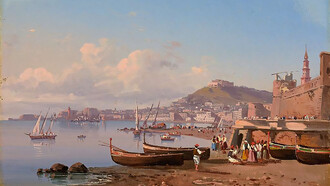It is important to find out what the traveler’s bank charges for foreign transactions.
Oftentimes the best exchange rate is obtained by using the credit or debit card, either to make purchases or to withdraw cash from an Automated Teller Machine (ATM). When doing so, people get the same exchange rates that banks offer to each other, without any additional fee. Travelers should contact their banks prior to leaving home and ask if they charge any fees; if they do, they should shop around for the best deal.
Know the currency exchange rate.
Finding out the current exchange rate is also very important before departing. Knowing the exchange rate is knowledge against bad deals. When abroad, people should not trust the signs at street kiosks, but they should verify the exchange rate online if possible.
Use the credit or debit card when possible.
As previously stated, by doing so people can get the best rate and will avoid ATM fees; when it is absolutely necessary to use an ATM, tourists should verify how much the machine will charge, as some machines will charge $5 or more.
Plan the budget while traveling.
Vacationers should not carry around a lot of cash, but just enough to avoid having to make a currency exchange. It is likely to get a better rate in large cities than small towns; thus, that should be also taken into consideration.
Take out cash only as needed.
This will help minimize the risk of robbery or pickpockets and avoid getting stuck with excess cash when returning home.
Avoid the exchange companies and Cambio booths seen in most train stations and airports.
Although convenient, and sometimes indispensible, especially after business hours, they often charge very high price. If cash is needed, and ATMs cannot be found, it would be best to go to a large bank, post office or to an American Express office.
Negotiate.
While it is not possible to negotiate the rate at a bank, if stuck exchanging money at a small store, there could be room to haggle and to get a better rate. Thus, it is vital to know the exchange rate before doing so; sometimes this will not work but it will be worth a try.
Compare rates.
Travelers should try two to three different exchange companies before settling on one.
Understand the "real" rate.
At times the low rate posted will be the "sell" rate but tourists will be charged the "buy" rate, which is higher; there may also be flat fees added to each transaction or extra commissions based on the amount of the exchange. Buyers should find out in advance the “real” amount they will receive from the exchange transaction.
Using the U.S. dollar.
Depending on the country travelers could use U.S. dollars; it is important to know the current exchange rate, and take the time to do the math before making a purchase.
Carrying a calculator.
Carrying a calculator is a good idea, as converting from one currency to another could create confusion.
Hotels and shops.
Hotels and shops will often exchange money for tourists. Vacationers should do the same due diligence they would with any other exchange vendor, as these places usually charge higher rates than banks.
Buying American Express traveler’s cheques.
Purchasing American Express traveler’s cheques, and cashing them in at an American Express office will have no service fees. However, finding an American Express office may be very difficult, especially in small towns. It is helpful to ask for a directory and to make sure to know what cities have them; they are very difficult to cash anywhere else.














